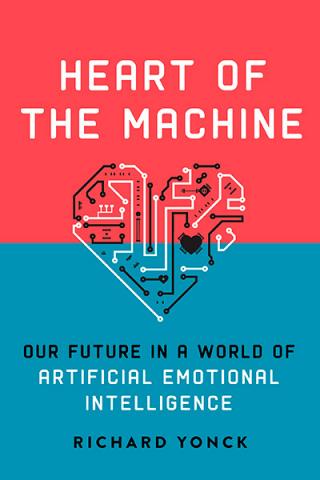| Finns i lager? | ||
|---|---|---|
| Webblager | ||
| Stockholm | ||
| Göteborg | ||
| Malmö | ||
| Linköping | ||
Imagine a robotic stuffed animal that can read and respond to a child's emotional state, a commercial that can recognize and change based on a customer's facial expression, or a company that can actually create feelings as though a person were experiencing them naturally. Heart of the Machine explores the next giant step in the relationship between humans and technology: the ability of computers to recognize, respond to, and even replicate emotions. Computers have long been integral to our lives, and their advances continue at an exponential rate. Many believe that artificial intelligence equal or superior to human intelligence will happen in the not-too-distance future; some even think machine consciousness will follow. Futurist Richard Yonck argues that emotion, the first, most basic, and most natural form of communication, is at the heart of how we will soon work with and use computers.
Instilling emotions into computers is the next leap in our centuries-old obsession with creating machines that replicate humans. But for every benefit this progress may bring to our lives, there is a possible pitfall. Emotion recognition could lead to advanced surveillance, and the same technology that can manipulate our feelings could become a method of mass control. And, as shown in movies like Her and Ex Machina, our society already holds a deep-seated anxiety about what might happen if machines could actually feel and break free from our control. Heart of the Machine is an exploration of the new and inevitable ways in which mankind and technology will interact.
Instilling emotions into computers is the next leap in our centuries-old obsession with creating machines that replicate humans. But for every benefit this progress may bring to our lives, there is a possible pitfall. Emotion recognition could lead to advanced surveillance, and the same technology that can manipulate our feelings could become a method of mass control. And, as shown in movies like Her and Ex Machina, our society already holds a deep-seated anxiety about what might happen if machines could actually feel and break free from our control. Heart of the Machine is an exploration of the new and inevitable ways in which mankind and technology will interact.
